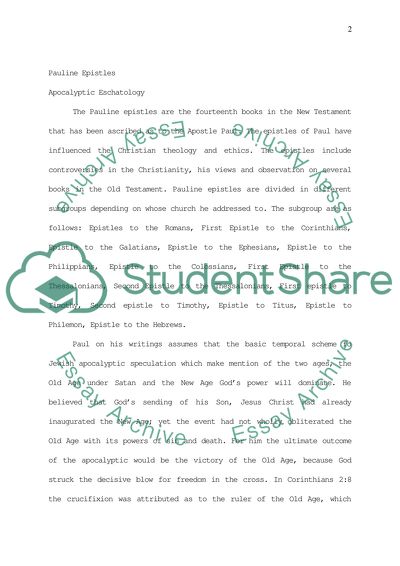Cite this document
(“Apocalyptic Eschatology and the Delay of Parousia Essay”, n.d.)
Apocalyptic Eschatology and the Delay of Parousia Essay. Retrieved from https://studentshare.org/miscellaneous/1499599-apocalyptic-eschatology-and-the-delay-of-parousia
Apocalyptic Eschatology and the Delay of Parousia Essay. Retrieved from https://studentshare.org/miscellaneous/1499599-apocalyptic-eschatology-and-the-delay-of-parousia
(Apocalyptic Eschatology and the Delay of Parousia Essay)
Apocalyptic Eschatology and the Delay of Parousia Essay. https://studentshare.org/miscellaneous/1499599-apocalyptic-eschatology-and-the-delay-of-parousia.
Apocalyptic Eschatology and the Delay of Parousia Essay. https://studentshare.org/miscellaneous/1499599-apocalyptic-eschatology-and-the-delay-of-parousia.
“Apocalyptic Eschatology and the Delay of Parousia Essay”, n.d. https://studentshare.org/miscellaneous/1499599-apocalyptic-eschatology-and-the-delay-of-parousia.


